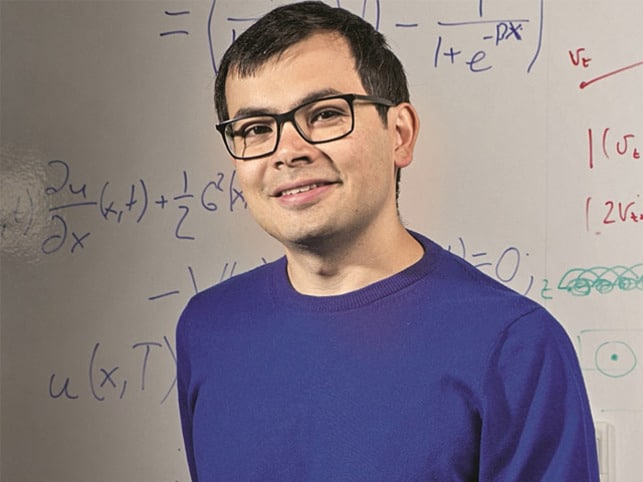
Artificial intelligence entrepreneur Demis Hassabis has been made a Commander of the Order of the British Empire for “services to science and technology”.
The announcement came in the same week as an interview with Demis (OE 1988–1990) by Prince Harry was broadcast on BBC Radio Four’s flagship Today programme, which the prince was guest-editing.
Demis is the co-founder and chief executive of DeepMind, which recently announced that its supercomputer program, AlphaGo, had taught itself to become the world’s best player of the ancient strategy game, Go, without any guidance from human beings.
Responding to news of the CBE, he told the BBC he was “very proud” of his team at DeepMind. “This is recognition of the immense contribution they have already made to the world of science and technology, and I’m excited about the potential for many more breakthroughs and societal benefit in the years ahead,” he said.
 DeepMind was acquired by Google in 2014 for a reported £400 million. Demis told Prince Harry that DeepMind’s workforce has gone from around 100 at that time to more 700 today, adding that there are over 60 nationalities and more than 400 PhDs inside the company.
DeepMind was acquired by Google in 2014 for a reported £400 million. Demis told Prince Harry that DeepMind’s workforce has gone from around 100 at that time to more 700 today, adding that there are over 60 nationalities and more than 400 PhDs inside the company.
“It’s really the biggest collection of brainpower anywhere in the world on this topic,” he said. “And it’s happening right here in King’s Cross so I’m very proud of that.”
Topics broached by the prince included the ethical implications of AI and what DeepMind is doing to ensure that the benefits of AI extend to all humanity. He also asked him why he has decided to keep DeepMind in London.
Demis said: “I’m a proud born-and-bred Londoner. I love London and Britain and I think that I have always believed that we have top talent here. We have world-leading universities and it just requires, I think, the ambition and the drive to actually really try and create a deep technology company like Deepmind. And I always felt it could be done in London.
 “But I was told at the beginning when we were starting up that we were crazy and that we should go to Silicon Valley and that that was the only place that you could build these types of companies. I think we proved that wrong. Even when we got bought by Google, I insisted that we would stay in London and build the research team here.”
“But I was told at the beginning when we were starting up that we were crazy and that we should go to Silicon Valley and that that was the only place that you could build these types of companies. I think we proved that wrong. Even when we got bought by Google, I insisted that we would stay in London and build the research team here.”
DeepMind has two floors in Google’s London headquarters, as well as smaller offices in California and Canada.
 With global competition for AI talent fierce, DeepMind’s hiring frenzy has not come cheap. The company spent £104.8 million on “staff costs and other related costs” last year, according to a document filed with Companies House in October, reported Sam Shead, of American finance and business website, Business Insider.
With global competition for AI talent fierce, DeepMind’s hiring frenzy has not come cheap. The company spent £104.8 million on “staff costs and other related costs” last year, according to a document filed with Companies House in October, reported Sam Shead, of American finance and business website, Business Insider.
The website added that DeepMind made a loss of £164 million in total in 2016, a significant increase on the £54 million loss it posted in 2015. However, the company brought in revenue for the first time in 2016, recording a turnover of £40 million. The turnover relates to DeepMind’s projects with Google.

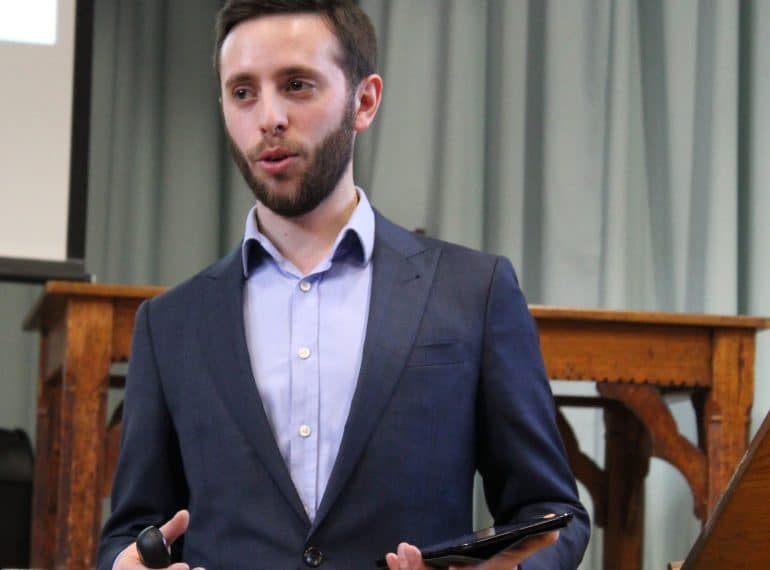
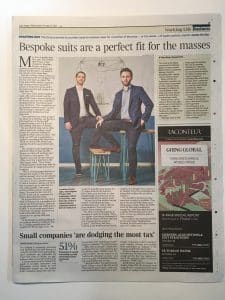
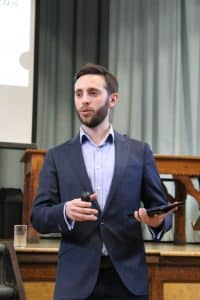 The Drop commissions a number of high-tech factories in the Far East to make its clothing. “It’s mass personalisation to replace mass production and fast fashion,” said Jonathan. “We only produce what we need, so we are building a fashion business that is not only better for the customer, but better for the world.”
The Drop commissions a number of high-tech factories in the Far East to make its clothing. “It’s mass personalisation to replace mass production and fast fashion,” said Jonathan. “We only produce what we need, so we are building a fashion business that is not only better for the customer, but better for the world.”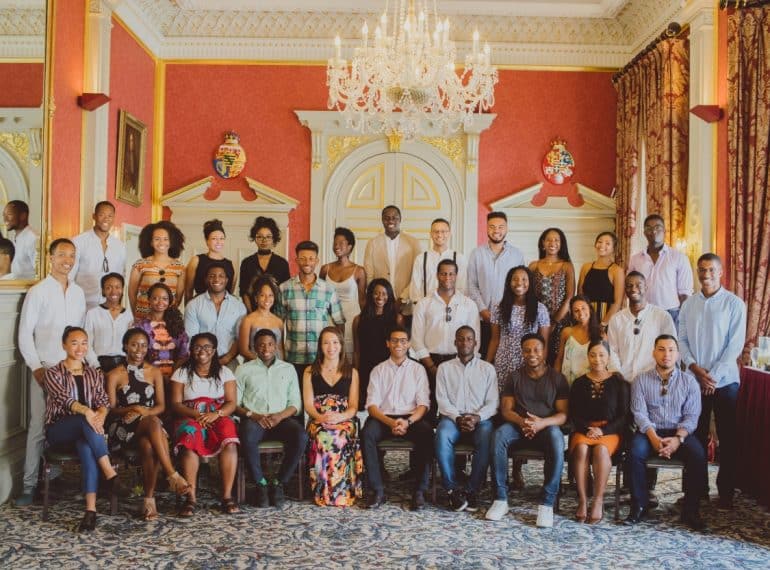
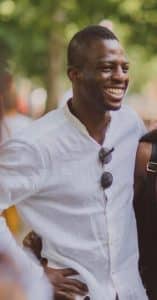
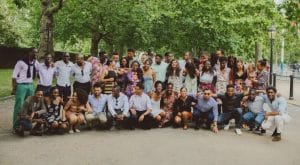 “Oxford was a fantastic educational experience and I want to ensure that prospective black students can believe this will be true for them as well,” he said.
“Oxford was a fantastic educational experience and I want to ensure that prospective black students can believe this will be true for them as well,” he said.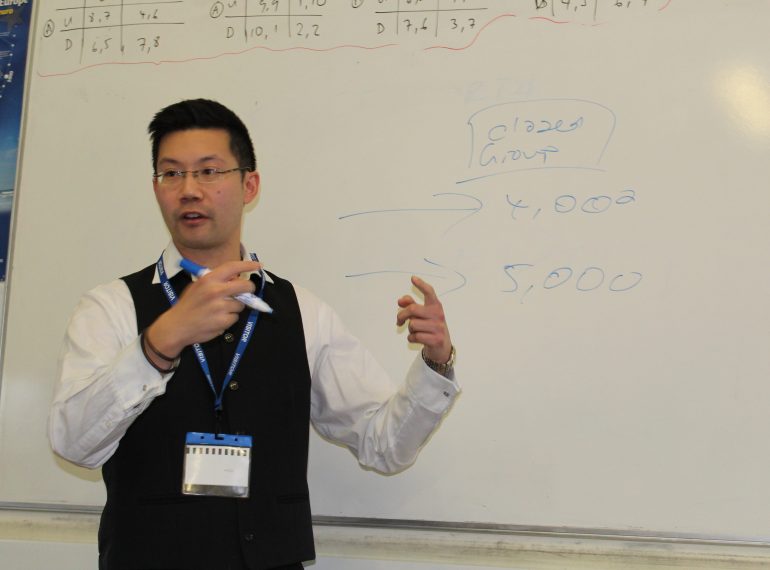
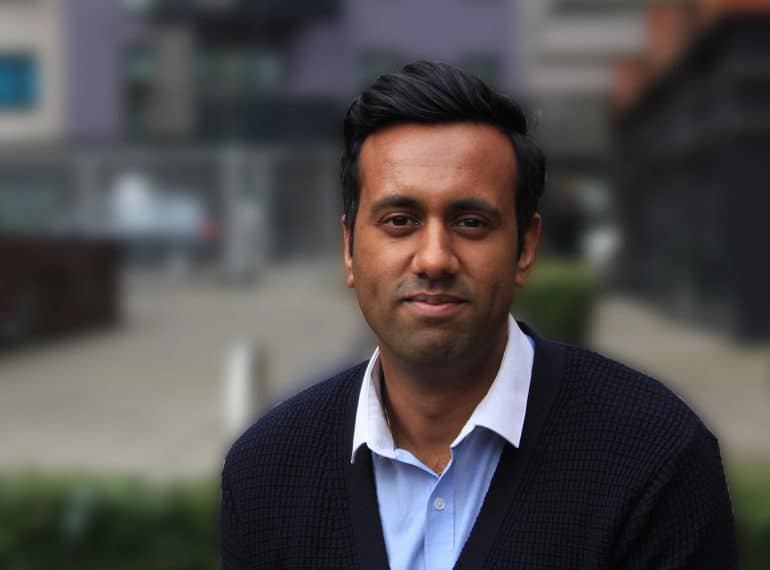
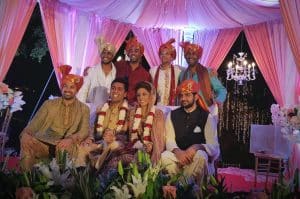 The second group photo shows, left-right, back row: Warren Balakrishnan (Underne); Rachita Lokubalasuriya (Leicester); Chivaar Gami (Leicester) and Ramesh. In the front row are: Ashish Gohil (Leicester); the groom, Bimal, and Dhanish Mahmood (Leicester). All except Ramesh are from the class of 2005.
The second group photo shows, left-right, back row: Warren Balakrishnan (Underne); Rachita Lokubalasuriya (Leicester); Chivaar Gami (Leicester) and Ramesh. In the front row are: Ashish Gohil (Leicester); the groom, Bimal, and Dhanish Mahmood (Leicester). All except Ramesh are from the class of 2005.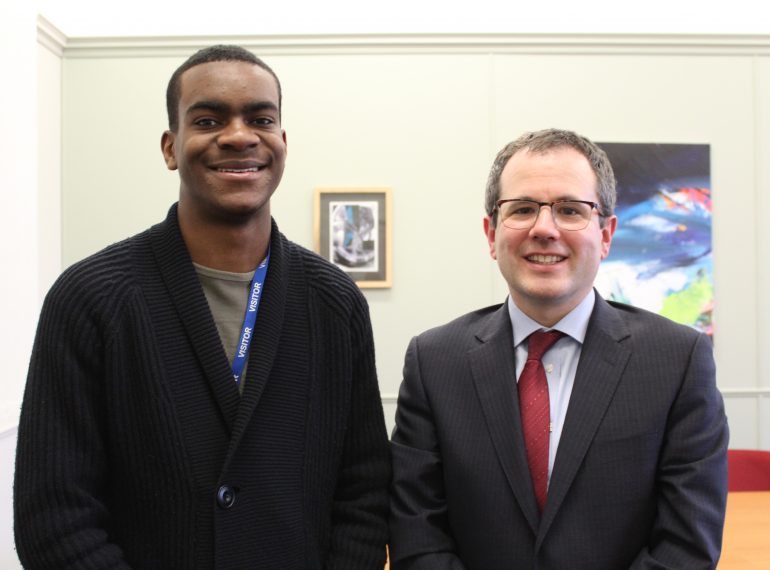
.JPG) ities furnished by Harvard for their post-graduates. And he explained how to register and prepare for SATs – the standardised US university admissions test.
ities furnished by Harvard for their post-graduates. And he explained how to register and prepare for SATs – the standardised US university admissions test.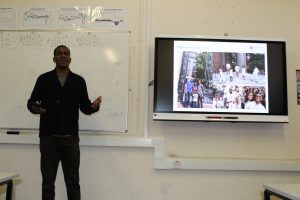 “It is the combination of breadth of curriculum and the extra-curricular opportunities that holds appeal for many of our boys who have a strong interest and ability across numerous disciplines,” added Mr Feven, who organised the visit.
“It is the combination of breadth of curriculum and the extra-curricular opportunities that holds appeal for many of our boys who have a strong interest and ability across numerous disciplines,” added Mr Feven, who organised the visit.